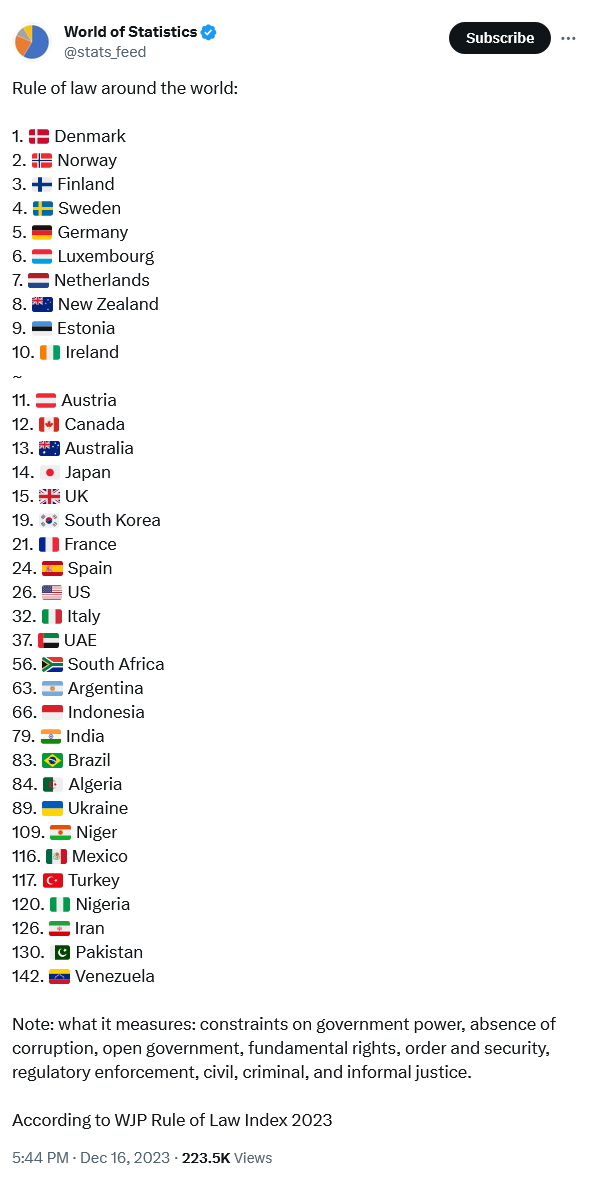Pakistani leaders, ministers, and advisors are constantly trying to assure people that the economy is improving by highlighting the stock market’s performance. However, the truth should be made clear to you. This misguided reliance on stock market figures as proof of economic health is not unique to Pakistan but a narrative employed by malicious governments globally. Citing a bullish stock market as a reflection of a thriving society—whether in Pakistan or in developed countries like Sweden, the UK, or the USA—should be met with skepticism. Governments often use stock market performance to mask deeper structural weaknesses and failing economic policies, and this tactic, regardless of the country's stature, demands deep suspicion.
The Deceptive Picture of Pakistan's Stock Market Performance
According to Topline Securities, the entire Pakistani stock market's value is now at $40 billion, down from $100 billion in 2017. During that time, the index was at 51,000 points, and today, despite reaching 86,000 points, the market remains a shadow of its former self. This stark decline highlights the incompetence of government officials who remain unwilling to learn or acknowledge their failures. They may attempt to manipulate numbers, but the underlying economic reality is much worse than what is presented to the public.
The Pakistani stock market is now in a poorer state than it was in 2017, and arguably even worse than in 2007. Before the nuclear tests in 1999, Pakistan's market had more value than it does today. This deterioration has rendered the Pakistani market one of the cheapest in the world—a dubious distinction indeed. Despite government rhetoric, economic fundamentals paint a dire picture, one that leaders hope to obscure by pointing to superficial improvements.
The Global Contrast and Reality Check
Now, consider the magnitude of this disparity with India. Pakistan’s market, with its $40 billion value, stands in stark contrast to India’s market, which is valued at a staggering $5,500 billion. That means Pakistan’s market is less than 1% of India’s. To put this further into perspective, a mere 1% fluctuation in India's market is equivalent to $55 billion, which is greater than Pakistan’s entire stock market.
India's richest individual, Mukesh Ambani, boasts a net worth of $110 billion—275% more than Pakistan’s entire stock market value. Azim Premji, India's second-richest person, has a wealth of $80 billion, which is 200% of Pakistan’s market. The scale is staggering, and the implications are profound. The government’s attempts to present the stock market as a barometer of economic prosperity are laughable in the face of such comparisons.
The Need for Smarter Capital Allocation
However, even the most ardent leftist, socialist, or economic cynic must recognize the importance of liquid capital in driving economic growth. Malicious governments may misuse stock market data to mask failures, but that does not diminish the value of a robust and regulated financial system. We must ferociously promote liquid capital in the economy—capital that is documented, regulated, and invested in visible, transparent markets like the Pakistan Stock Exchange (PSX), debt markets, and regulated bank deposits.
Unfortunately, Pakistan’s economic landscape is marred by the proliferation of "dumb capital"—idle wealth tied up in unproductive assets like empty plots in DHA Phase 8 or Bahria Town, speculative ponzi plot file schemes, Vigos, Rolex watches, gold, and foreign currency hoarded in bank lockers. This capital contributes nothing to the growth of the formal economy and instead exacerbates inequality, as it drives up asset prices and forces middle-class families out of the housing market.
It is tragic that even the wealth amassed through questionable means—such as bootleggers profiting off the Jack Daniel-loving elites—finds its way into unregulated, idle assets instead of being invested in documented, regulated markets. Such behavior not only distorts the market but also prices out hardworking families from accessing basic necessities like housing. In a country like Pakistan, where owning a home is increasingly out of reach for the middle class, the concentration of wealth in these unproductive assets is particularly harmful.
Building a Balanced View of the Economy
We can take a complex and multifaceted view of the world. On the one hand, the development of Pakistan’s stock market and capital markets should be seen as a positive step toward economic growth and stability. Encouraging savings to flow into regulated, documented financial systems like the PSX is essential for long-term development. At the same time, we must remain vigilant and critical of government attempts to deceive the public with claims that a bullish stock market equals economic success.
The truth is that the stock market is just one piece of a much larger economic puzzle. While building up the PSX should be encouraged, this does not absolve the government from addressing the deeper issues that plague Pakistan’s economy—such as unemployment, inflation, and the depreciation of the currency. It is not enough to point to a rising stock market index while the vast majority of the population continues to struggle with economic hardship.
A Historical Perspective: Lessons from the Dutch
To understand the true role of the stock market, we can look back to its origins in the 1600s, when the Colonial Dutch established the first stock market as a mechanism to share risk for ships making dangerous long voyages. The stock market was never intended to serve as a litmus test for the health of an entire economy. Rather, it was designed to allocate risk and capital efficiently, supporting ventures that could lead to growth and prosperity. Today, this fundamental purpose has been distorted, with governments and financial institutions often using the stock market as a tool for manipulation and self-preservation.
In Pakistan, this lesson from history is more relevant than ever. While the stock market can and should play a role in economic development, it must be understood within the broader context of the economy. The government's attempts to inflate its importance while ignoring other critical factors are not only misguided but dangerous.
A Grim Reality for the Majority
The reality is that out of Pakistan’s population of 250 million, only 200,000 people have opened accounts in the stock market. Even more concerning is that of these, fewer than 50,000 actively trade. The overwhelming majority of Pakistanis are disconnected from the stock market and its supposed benefits. For these individuals, the stock market is an abstract concept, far removed from their daily struggles with inflation, unemployment, and economic instability.
The government's focus on stock market performance is therefore not just a distraction—it is an insult to the millions of Pakistanis who are left behind by an economic system that favors the wealthy and well-connected. The elite few who can afford to participate in the stock market do so at the expense of the many, further entrenching inequality and exacerbating social divisions.
A Call for True Reform
The time has come for a reckoning. Pakistan’s stock market can no longer be used as a tool for government propaganda. Instead, it must be reformed to serve the broader interests of the economy and the population. This means encouraging greater participation, improving transparency, and ensuring that the benefits of economic growth are shared more equitably. At the same time, the government must be held accountable for its failures and forced to address the deeper structural issues that continue to hold Pakistan back.
In conclusion, the Pakistani stock market, while an important element of the economy, is not the panacea that the government would have us believe. Its performance, especially when compared to the likes of India, reveals the stark challenges that Pakistan faces. We must remain critical of the government’s attempts to use the stock market as a distraction from its broader economic failures, and we must continue to push for real reform that benefits all Pakistanis, not just the elite few.
Author Details: Syed Salman Mehdi, linkedin/in/multithinker, email: salmanmehdi128@gmail.com












